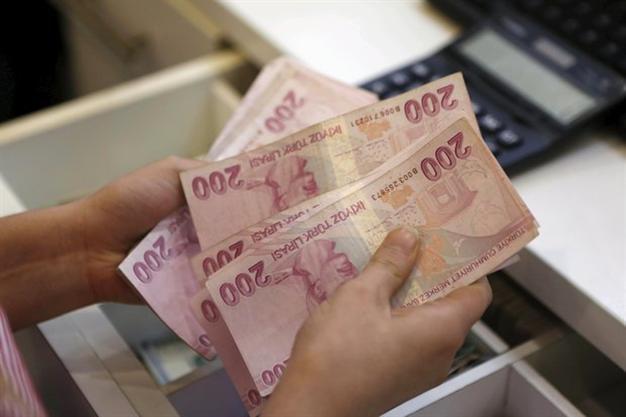Turkish economy ministers send mixed signals
ANKARA

REUTERS photo
Leading ministers from the economy administration have voiced differing comments amid the rising political uncertainties and security concerns just ahead of an expected rate hike by the U.S. Federal Reserve (Fed), which has already hit many emerging economies, including Turkey.
Finance Minister Mehmet Şimşek warned of potential economic losses unless political stability is maintained and the country returns to a reform agenda, while Economy Minister Nihat Zeybekci noted any crisis discourses were no more than manipulation.
Turkey’s economic gains have been under threat amid political uncertainty and the lack of a reform agenda, according to Şimşek.
“Unless we maintain political stability and return to a reform agenda again, we cannot preserve existing economic gains, we can leave the 2023 economic targets outside,” he said during an interview on Turkish Kanal 7 on Sept. 13.
Şimşek underlined the importance of fiscal discipline in Turkey as there is not political stability or an EU membership agenda.
“Turkey has only one anchor now. There is no political stability or EU agenda. We have only one advantage, which is fiscal policy. If this advantage is wasted for the sake of election calculations, Turkey will face double deficits, which are a budget deficit and a current account deficit,” Şimşek said.
He noted Turkey’s biggest advantage was the political stability and decisive reform agenda between 2002 and 2014, despite all the negativities in the global markets.
“Turkey couldn’t bear further political instability as it loses its fiscal integrity,” Şimşek said, adding the new budget should not be an interim one but rather a permanent budget, to be applied in the next year.
Meanwhile, Zeybekci said any interpretations or comments about the possibility of a crisis in the Turkish economy should be seen as more than manipulative moves.
“There is no structural indicator which shows the economy will face a crisis,” Zeybekci said, as quoted by Turkish daily Yeni Şafak.
Zeybekci noted there was no crisis sign in basic indicators, including current account deficit, growth figures, employment data, banks’ capital ratios and the Turkish Central Bank’s reserves.
